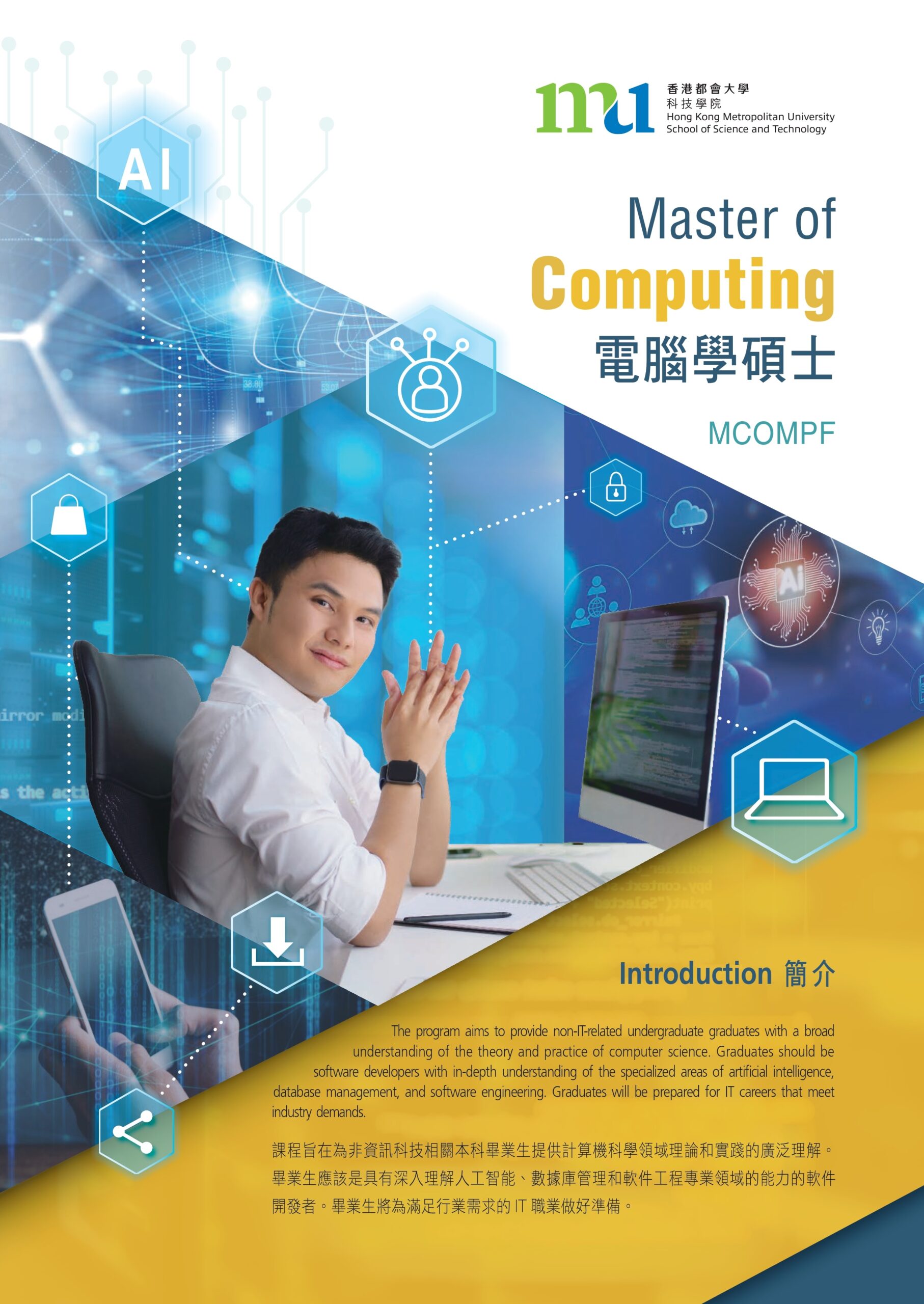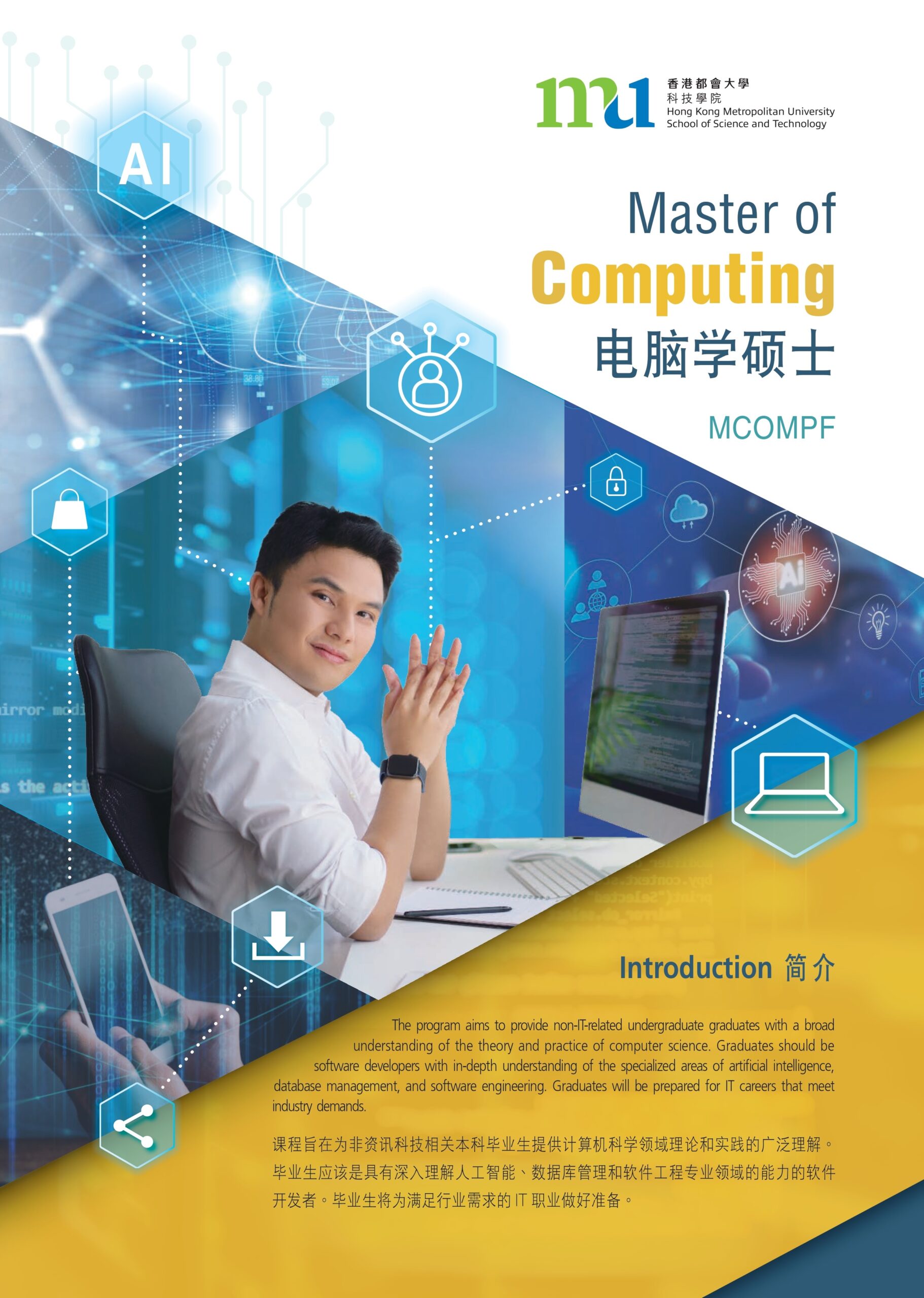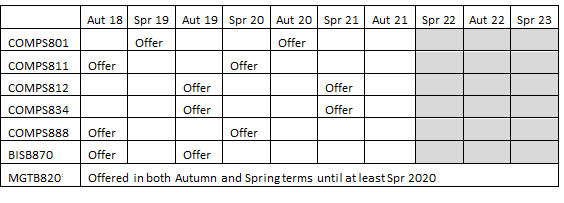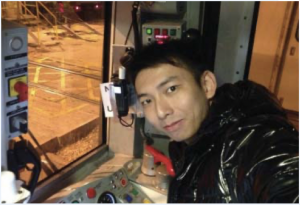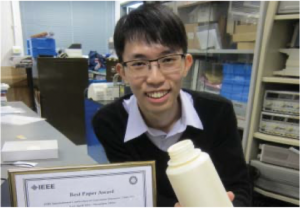Master of Science in Information Technology with Internet Applications (MSCITIA)
Distance Learning Mode Part-time
The programme will not admit any more new students.
The University is phasing out the Information Technology with Internet Applications (MSCITIA) programme suite, which includes the Postgraduate Diploma in Internet Technology and Applications (PDITA) and the Postgraduate Certificate in Multimedia and Internet Technology (PCMIT).
The University considers that the enrolment of the MSCITIA programme suite is too low to sustain it. You should start making plans to complete the remaining courses required for your programme.
The following shows the course offering schedule*
*The course offering schedule is subject to change
We strongly recommend you consider completing your programme in three years (although five years is also feasible). We will contact you soon to help you finalize a study plan for completing your programme.
If you have any questions, please contact us. The information is in the Enquiries.
Programme Introduction
This programme provides students with technical competency in the development and application of Information Technology (IT) through selected areas in Internet Applications (IA).
Students are expected to develop the capacity to make IT/IA decisions as well as integrating advanced IT/IA knowledge and skills in their line of work.
The programme has been recognized for its contribution to Hong Kong IT professional development with the award of the Professional Development Bronze Award at the Hong Kong ICT Awards 2012.
Programme Characteristics
- Multi-exits for reaping your rewards quicker.
- Distance learning study mode allowing greater flexibility in studying.
Programme Structure
Please refer to the official Programme Regulations before registration. The programme regulations and the courses on offer are subject to revisions.
- Master of Science in Information Technology with Internet Applications (MSCITIA) Programme Regulation
- 60 credits from Table 1 with at least 20 credits from IA courses.
- Postgraduate Diploma in Internet Technology and Applications (PDITA) Programme Regulation
- 40 credits from COMP S801, COMP S811, COMP S834, and COMP S888
- Postgraduate Certificate in Multimedia and Internet Technology (PCMIT) Programme Regulation
- 20 credits from (a) COMP S888 and (b) COMP S811 or COMP S834
Table 1. MSCITIA Course Table
| Code | Title | Credits | IA | PCMIT |
|---|
| BISB870 | Electronic Commerce for Managers | 10 | IA | |
| MGTB820 | Strategy | 10 | | |
| COMPS801 | Object Oriented Programming and Internet Application Development | 10 | IA | |
| COMPS811 | Java Programming for Web Applications, Enterprise Computing and Mobile Devices | 10 | IA | EL |
| COMPS834 | Web Server Technology | 10 | IA | EL |
| COMPS888 | Multimedia Technology | 10 | IA | Core |
| COMPS812 | Information Security | 10 | | |
*The programme requirements & the courses on offer are subject to changes
Entry Requirements and Admission
To enter into this programme, a student shall normally possess any one of the following:
- A recognized degree in computing or related fields or equivalent.
- A recognized degree in mathematics, science, and engineering with a minor in computing or related fields or equivalent.
- A recognized degree in mathematics, science, and engineering plus one year working experience in information technology.
- A recognized degree in any area with substantial working experience at supervisory level in information technology or equivalent. (Knowledge about computer programming is needed in some courses)
It is expected that the medium of instruction of the applicant's institution is English. Please refer to the General entry requirements.
Course Scheduling and Period of Study
Some courses are offered in the Spring semeter and others in the Autumn semester. Please refer to the University's Course Schedule for the tentative schedule.
Course Fees:
Each 10 credits cost around $13,900 to $17,950. (subject to revision)
Credit Exemption
Credit exemption is available based on recognized postgraduate qualifications. Please refer to the Credit Exemption for Postgraduate Programmes for precedent cases.
Contact the Advanced Standing Office for more information.
Enquiries
Computing Team
Tel: 3120 2504
Email: cteam@hkmu.edu.hk
Postgraduate Diploma in Internet Technology and Applications (PDITA)
Distance Learning Mode Part-time
The programme will not admit any more new students.
The University is considering phasing out the Information Technology with Internet Applications (MSCITIA) programme suite, which includes the Postgraduate Diploma in Internet Technology and Applications (PDITA) and the Postgraduate Certificate in Multimedia and Internet Technology (PCMIT).
Please visit the MSCITIA page for more information.
The PDITA is an early exit qualification of the MSCITIA programme suite.
The PCMIT aims to provide professional development for graduates in computing or related fields as well as IT professionals who need advanced training in IT with an emphasis on Internet applications.
Graduates from this programme could also extend their study to pursue the MSCITIA degree.
Refer to the MSCITIA page for further details
Articulation
Students completed PDITA could study additional credits for the following degree.
- Master of Science in Information Technology with Internet Applications (MSCITIA)
Programme Structure
Postgraduate Diploma in Internet Technology and Applications (PDITA) Programme Regulation
- 40 credits from IA courses: COMP S801, COMP S811, COMP S834, and COMP S888
Entry Requirements and Admission:
Please refer to the Master of Science in Information Technology with Internet Applications (MSCITIA) page for the information.
Postgraduate Certificate in Multimedia and Internet Technology (PCMIT)
Distance Learning Mode Part-time
The programme will not admit any more new students.
The University is considering phasing out the Information Technology with Internet Applications (MSCITIA) programme suite, which includes the Postgraduate Diploma in Internet Technology and Applications (PDITA) and the Postgraduate Certificate in Multimedia and Internet Technology (PCMIT).
Please visit the MSCITIA page for more information.
The PCMIT is an early exit qualification of the MSCITIA programme suite.
The PCMIT aims to provide students with training and practices in the two areas in modern day computing. Graduates from this programme could also extend their study to pursue the MSCITIA degree.
Refer to the MSCITIA page for further details
Articulation
Students completed PCMIT could study additional credits for the following degrees.
- Master of Science in Information Technology with Internet Applications (MSCITIA)
- Postgraduate Diploma in Internet Technology and Applications (PDITA)
Programme Structure
Postgraduate Certificate in Multimedia and Internet Technology (PCMIT) Programme Regulation
- 10 credits from COMP S888.
- 10 credits from COMP S811 or COMP S834.
Entry Requirements and Admission:
Please refer to the Master of Science in Information Technology with Internet Applications (MSCITIA) page for the information.





